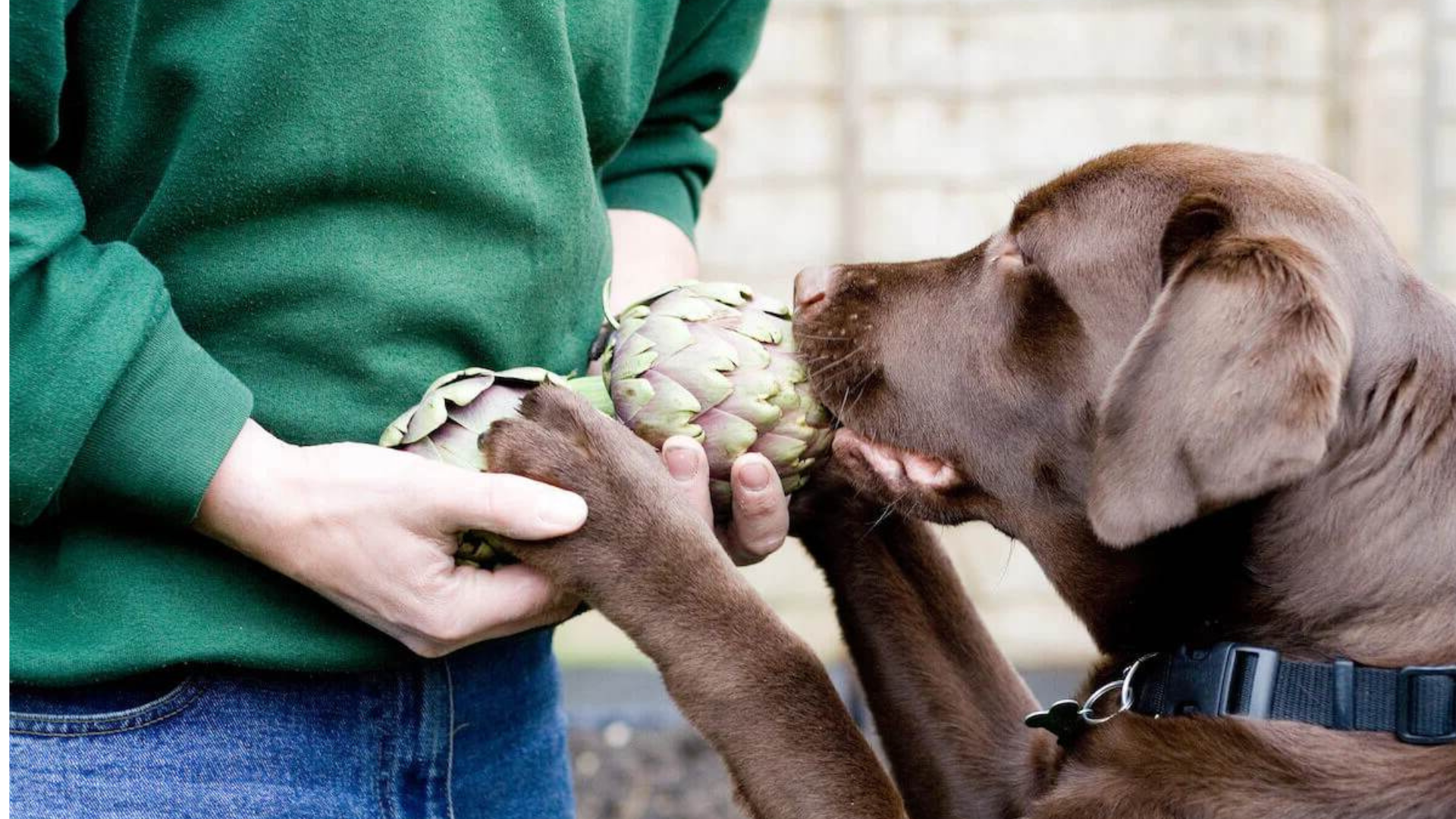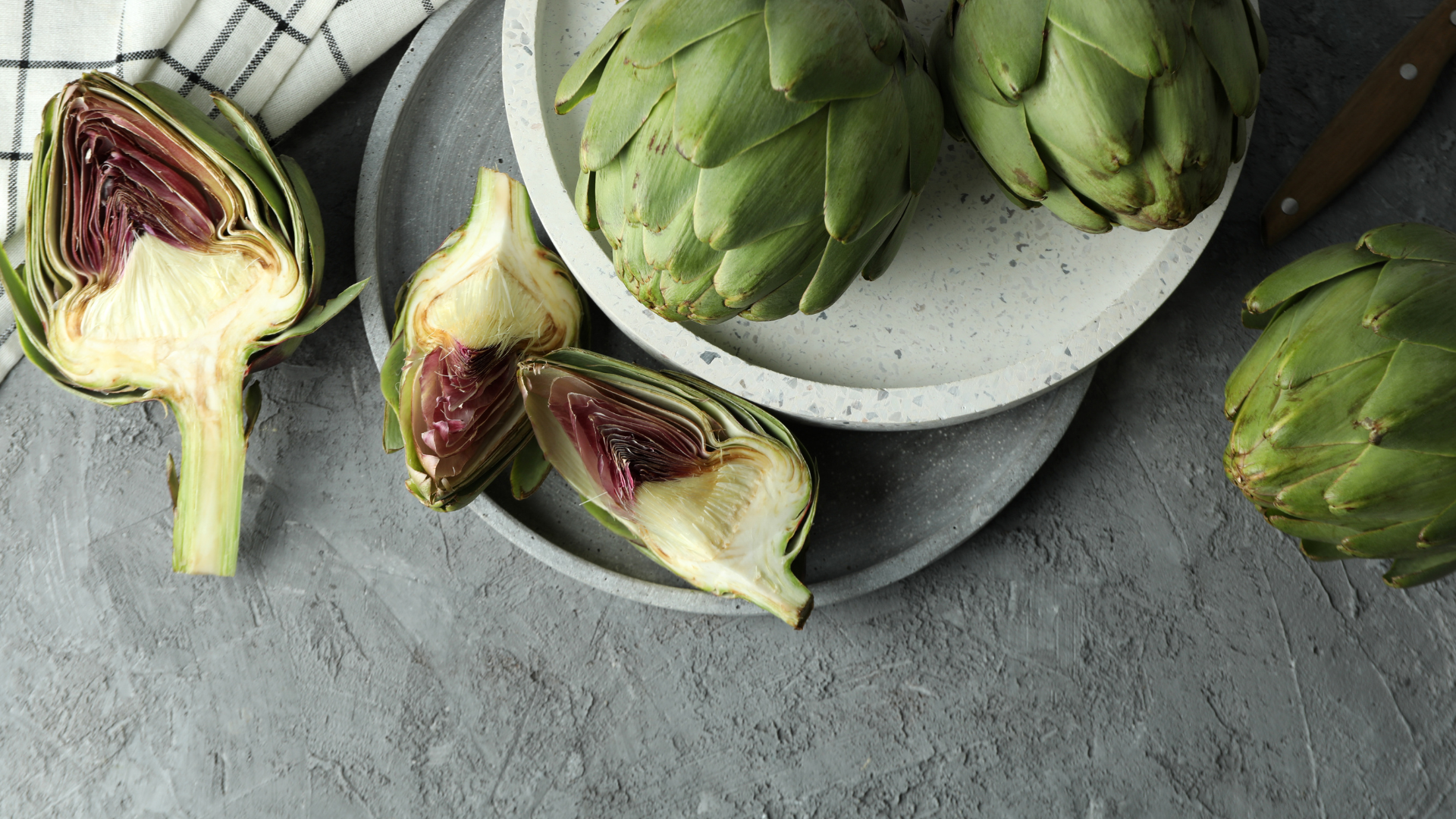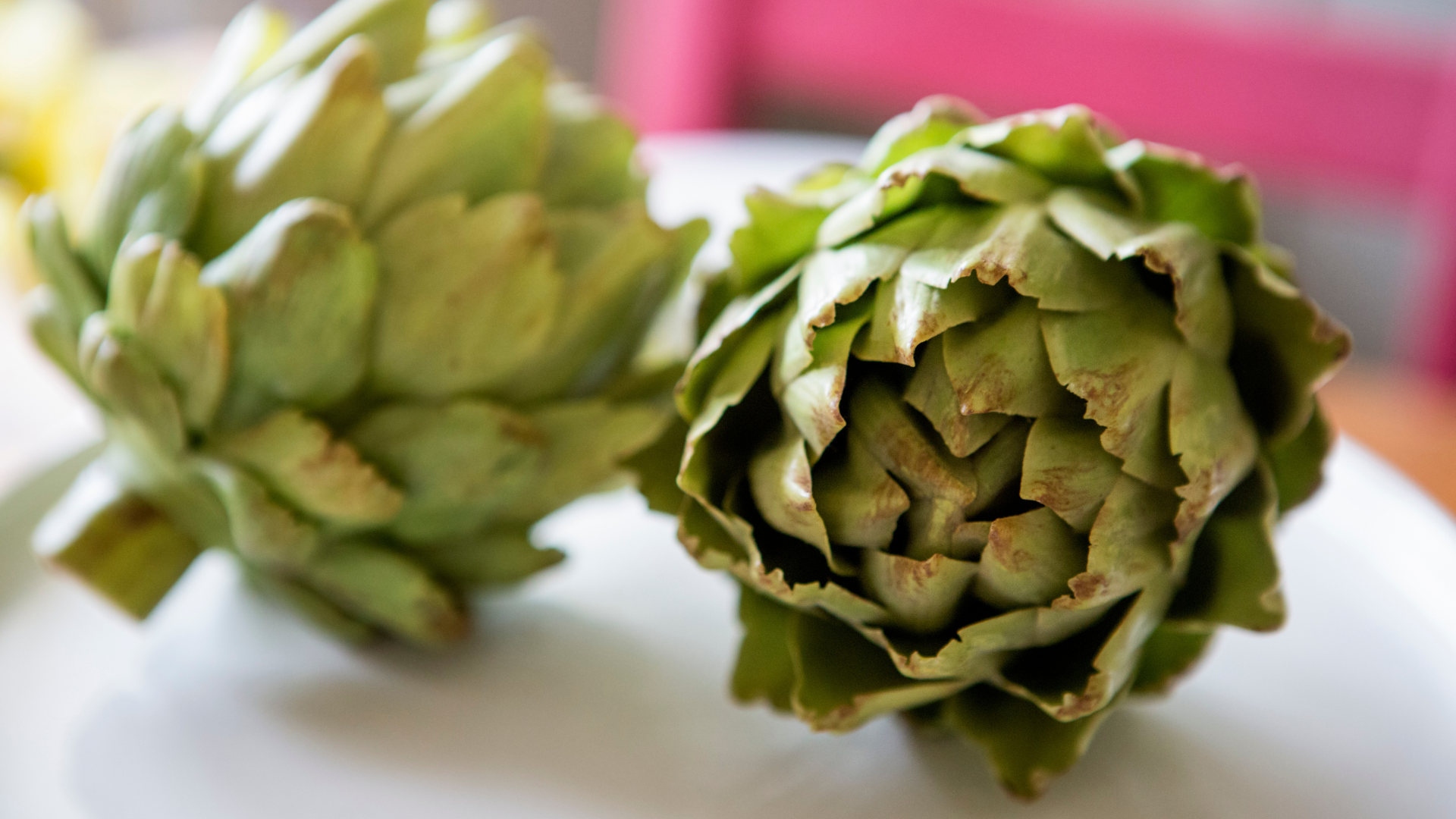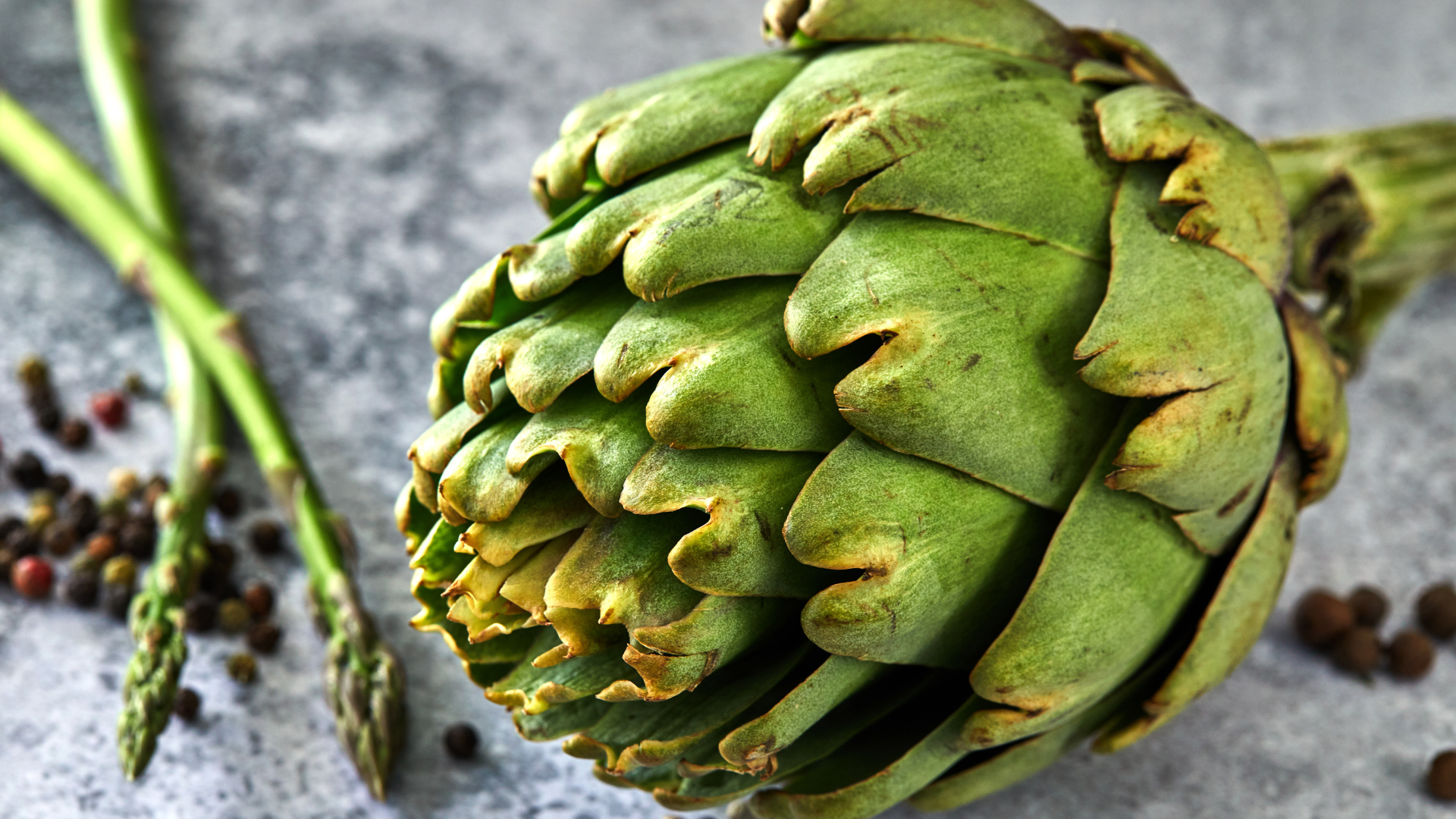Dogs are often considered to be a part of the family, and many pet owners are keen to share their food with their furry friends. However, not all human foods are safe for dogs to eat. One food that may be on a dog owner's mind is artichokes. Specifically, can dogs eat artichoke hearts?

Artichokes are a type of vegetable that are often used in cooking and are known for their unique flavor. They are also a good source of nutrients such as vitamin C, folate, and potassium. While artichokes are generally safe for dogs to eat, it's important to prepare them properly and in moderation.
In this article, we will explore whether dogs can eat artichoke hearts, the potential benefits and risks of feeding them to your pet, and how to prepare them safely. We will also examine what other human foods are safe for dogs to eat and which ones should be avoided.
Can Dogs Eat Artichoke Hearts?
Artichoke hearts are the edible portion of the artichoke flower bud and are commonly used in various dishes. While artichokes themselves are generally considered safe for dogs to eat in moderation, it's important to note that artichoke hearts may not be as beneficial or safe for our furry friends.
One of the main concerns with feeding artichoke hearts to dogs is their high fiber content, which can cause digestive upset, including diarrhea, vomiting, and bloating. Additionally, artichoke hearts contain a compound called cynarin, which can cause an upset stomach and even liver damage in dogs if consumed in large amounts.

It's important to note that dogs have different digestive systems than humans and may not be able to digest certain foods as easily. Therefore, it is recommended to introduce new foods to your dog's diet gradually and in small amounts to avoid any potential digestive issues.
If you're considering feeding your dog artichoke hearts, it's best to consult with your veterinarian first to ensure that it is safe for your dog to consume. Your vet can provide you with specific recommendations based on your dog's age, weight, and overall health.
In summary, while artichokes are generally safe and healthy for dogs, it's best to avoid feeding them artichoke hearts due to their high fiber content and the potential for digestive upset and liver damage.

Nutritional Benefits of Artichokes for Dogs
Artichoke hearts are a safe and healthy treat for dogs when given in moderation. They contain various vitamins and minerals that can aid in a dog's body functions, support their immune system, and promote proper development.
Vitamins and Minerals in Artichokes
Artichokes are an excellent source of vitamins and minerals, including Vitamin C, Vitamin K, potassium, magnesium, folate, and antioxidants. These nutrients can help support a dog's overall health and well-being.
Artichokes and Digestive Health
Artichokes are high in fiber, which can be beneficial to a dog's digestive health when given in moderation. However, excessive intake can lead to gastrointestinal distress, so it is essential to monitor the amount given to the dog.
Immune System Support
Artichokes contain antioxidants that are beneficial to a dog's immune system. Antioxidants help protect the body from damage caused by free radicals and reduce the risk of chronic diseases.
Overall, artichokes are a healthy addition to a dog's diet when given in moderation. They provide numerous nutritional benefits, including vitamins, minerals, fiber, and antioxidants, that can help support a dog's overall health and well-being.

Potential Risks of Feeding Artichokes to Dogs
While artichokes can offer some nutritional benefits to dogs, there are also potential risks associated with feeding them to your furry friend. Here are some of the potential risks to consider:
Choking Hazards and Blockages
One of the main concerns with feeding artichokes to dogs is that they can pose a choking hazard, especially for smaller breeds. The tough outer leaves and prickly thistle can be difficult for dogs to chew and swallow, potentially leading to choking or blockages in the intestines.
Digestive Upset and Allergies
Artichokes are high in fiber, which can cause digestive upset in some dogs, including diarrhea, vomiting, and bloating. Additionally, some dogs may be allergic to artichokes, which can cause gastrointestinal distress and other symptoms such as itching, hives, and swelling.
Toxic Ingredients and Seasonings
Another potential risk associated with feeding artichokes to dogs is the inclusion of toxic ingredients and seasonings in artichoke dishes. For example, artichoke dip often contains ingredients such as salt, garlic, and oil, which can be harmful to dogs in large amounts. Additionally, some artichoke dishes may contain preservatives or other additives that can be harmful to dogs.
Oxalic Acid
Artichokes contain oxalic acid, which can be harmful to dogs in large amounts. While small amounts of oxalic acid are generally safe for dogs, excessive consumption can lead to kidney damage and other health problems.
To minimize these potential risks, it is important to introduce artichokes to your dog's diet gradually and in small amounts. Additionally, it is important to avoid feeding your dog artichoke dishes that contain harmful ingredients or seasonings. If you have any concerns about feeding artichokes to your dog, it is always best to consult with your veterinarian first.

Safe Preparation of Artichokes for Dogs
When it comes to feeding artichokes to dogs, it's important to prepare them properly to ensure that they are safe and healthy for your furry friend. Here are some tips on how to safely prepare artichokes for dogs.
Cooking Methods
Artichokes can be cooked in a variety of ways, including boiling, steaming, baking, and frying. However, when it comes to feeding artichokes to dogs, it's best to stick with boiled or steamed artichokes. This is because frying can add unnecessary fat and calories, while baking can cause the artichokes to become too tough for your dog to eat.
Choosing the Right Artichokes
When selecting artichokes for your dog, it's important to choose fresh, whole artichokes that have not been marinated or canned. Marinated artichokes can contain added salt and other ingredients that may not be safe for your dog, while canned artichokes can contain preservatives and other additives that may not be healthy for your pet.
Appropriate Portions
Moderation is key when it comes to feeding artichokes to dogs. While artichokes can be a healthy addition to your dog's diet, they should only be fed in small amounts as a treat. Too much artichoke can cause digestive issues, such as diarrhea or flatulence, so it's important to feed them in moderation.
In summary, when it comes to feeding artichokes to dogs, it's important to prepare them properly and feed them in moderation. Stick with boiled or steamed fresh artichokes and avoid marinated or canned artichokes. Feed them in small amounts as a treat, and always monitor your dog for any signs of digestive issues. By following these tips, you can safely add artichokes to your dog's diet and provide them with a healthy and tasty treat.
Specific Artichoke Products and Dogs

Marinated Artichokes and Seasoned Varieties
Marinated artichokes and other seasoned varieties of artichokes are not recommended for dogs. These products often contain seasonings, spices, and other ingredients that can be harmful to dogs. For example, marinated artichokes may contain garlic, which is toxic to dogs and can cause anemia. Similarly, some seasoned varieties of artichokes may contain cheese, which can cause digestive problems in dogs.
Artichoke Leaves and Other Parts
While fresh artichokes are safe for dogs to eat in moderation, other parts of the artichoke plant, such as the leaves, can be harmful. Artichoke leaves contain cynarin, a compound that can cause digestive upset in dogs if consumed in large amounts. Therefore, it is best to avoid feeding artichoke leaves to dogs.
Commercial Artichoke Preparations
Commercial artichoke preparations, such as artichoke dip and fried artichokes, should also be avoided. These products often contain high amounts of salt, fat, and other ingredients that can be harmful to dogs. Fried artichokes, for example, are high in fat and can cause digestive upset or even pancreatitis in dogs.
In summary, while fresh artichokes are safe for dogs to eat in moderation, it is important to avoid feeding dogs marinated artichokes, seasoned varieties, artichoke leaves, and commercial artichoke preparations. It is also important to avoid adding seasonings, spices, or other ingredients to artichokes when preparing them for dogs.

Alternative Vegetables for Dogs
While artichoke hearts can be a healthy addition to a dog's diet, not all dogs may enjoy the taste or texture of this vegetable. Fortunately, there are plenty of other vegetables that are safe for dogs to eat and can provide similar health benefits.
One great alternative to artichoke hearts is carrots. Carrots are a good source of fiber, vitamins, and minerals, and are low in calories. They are also crunchy, which can help keep a dog's teeth clean and healthy.
Another safe vegetable for dogs is green beans. These vegetables are low in calories and high in fiber, making them a great choice for dogs that need to lose weight or maintain a healthy weight. Green beans are also a good source of vitamins and minerals, including vitamin C, vitamin K, and manganese.
Broccoli is another safe vegetable that dogs can eat. This superfood is packed with nutrients, including vitamins C and K, fiber, and antioxidants. However, it is important to feed broccoli in moderation, as too much can cause digestive upset.
Jerusalem artichokes, also known as sunchokes, are a type of root vegetable that are safe for dogs to eat. These vegetables are high in fiber and contain a variety of vitamins and minerals, including potassium, iron, and vitamin B6. However, it is important to note that these vegetables can cause gas and digestive upset in some dogs, so they should be introduced gradually and in small amounts.
Overall, there are many safe and healthy vegetables that dogs can eat, including carrots, green beans, broccoli, and Jerusalem artichokes. By incorporating a variety of vegetables into a dog's diet, owners can help ensure that their furry friends are getting all the nutrients they need to stay healthy and happy.

When to Consult a Veterinarian
While artichoke hearts are generally safe for dogs to consume in moderation, it's important to monitor their reaction to this food. Introduce artichoke hearts gradually and in small portions to avoid digestive issues. If your dog experiences any allergic reactions or gastrointestinal upset after consuming artichoke hearts, discontinue feeding them this food and consult with your veterinarian.
It's also important to note that artichoke hearts may not be as beneficial or safe for our furry friends. The high fiber content found in these little morsels can sometimes cause digestive issues like diarrhea or upset stomachs in dogs. Therefore, it's essential to be aware of the potential risks and consult a veterinarian before introducing them.
Moreover, if your dog has any underlying health conditions or diseases such as liver disease or cancer, it's crucial to consult with your veterinarian before adding artichoke hearts to their diet. Artichoke hearts contain oxalates, which can lead to the formation of calcium oxalate stones in dogs with a history of urinary tract problems. Therefore, it's essential to monitor your dog's health and seek veterinary attention if you notice any signs of discomfort or illness.
In summary, while artichoke hearts can be a healthy addition to your dog's diet, it's important to consult with your veterinarian before introducing them. Monitor your dog's reaction to this food and seek veterinary attention if you notice any adverse effects.
Conclusion:
In conclusion, while artichoke hearts can offer some nutritional benefits for dogs, they should be fed with caution. The high fiber content and potential for digestive upset or allergic reactions make it important to introduce them gradually and in moderation. Always prepare artichokes properly, avoiding seasonings and harmful additives. Consult your veterinarian before adding artichoke hearts to your dog's diet, especially if your pet has underlying health conditions. By taking these precautions, you can safely include artichokes as an occasional treat, ensuring your furry friend's health and well-being.




